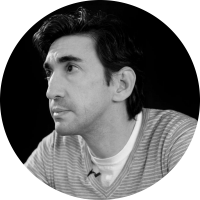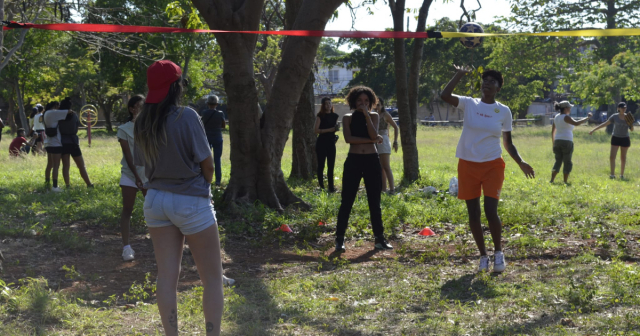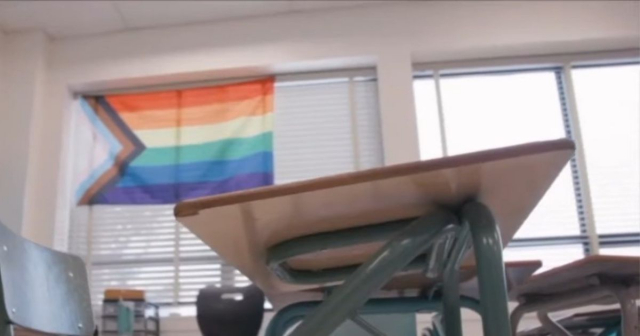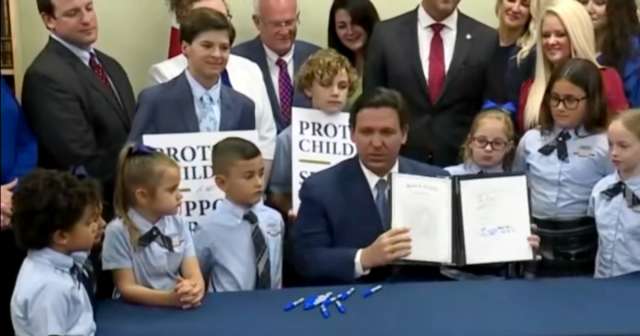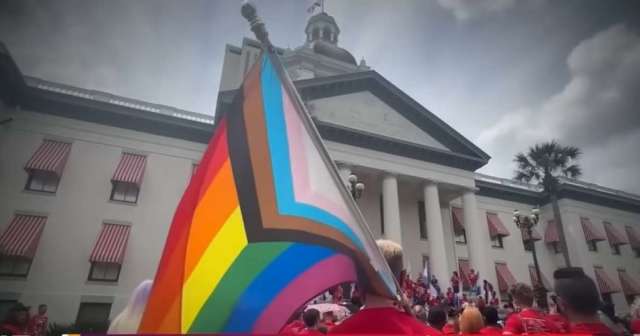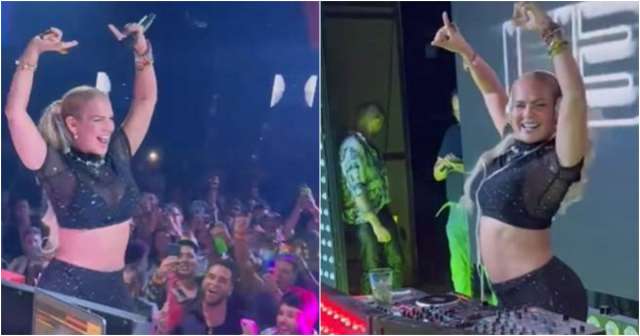Cuban representative Mariela Castro Espín criticized those who distort and overstate the repressive impact of the Military Units to Aid Production (UMAP), where 25,000 Cubans were interned for three years in more than seventy camps in the province of Camagüey, and the He compared it to the schools in the countryside where thousands of students went each year to carry out agricultural work.
The daughter of Raúl Castro Ruz and director of the National Center for Sexual Education (CENESEX) said that the UMAP were agricultural work camps, at a time when food production was necessary, and compared them to the Youth Army of Labor and theschools in the countryside, where hundreds of thousands of young Cubans studied.
"We went to school in the countryside. Were going to school in the countryside concentration camps?" declared the director of CENESEX.
Mariela Castro Espín's statements about the UMAP occurred in an interview with Edmundo García, a Cuban YouTuber living in Miami, after having spent a few years living poorly in Havana and having returned to the United States to undertake aideological battle,always according to his own testimony.
Cubans forcibly interned in the work camps of the UMAP and international Human Rights organizations have documented the abuses against homosexuals, religious people and other people called lumpenes by the Castro regime, which kept those prisons operating between 1965 and 1968.
Professor Rafael Hernández, director of the magazineThemes, He stated in an article that 25,000 prisoners were held in the UMAP, distributed in more than 70 camps, in the province of Camagüey, between 1965 and 1968, after conducting an investigation into one of the most painful wounds of the Cuban nation.
"The way they picked up the people was terrible," Castro Espín acknowledged, but later blamed the MININT. "That was work that was done by the Ministry of the Interior (MININT), it was not compatible with what the Armed Forces had decided," he explained.
Many people, "annoyed by the distortions," have approached Mariela Castro Espín to give her the "true" testimonies of UMAP, where the repression was "rather the result of a casuistry," she asserted.
"In the UMAP there weremanagers that they were not homophobic, and that they treated their people well, and that they were understanding, and others that they were animals," he added.
A report by "a French psychoanalyst" who worked for the Castro army saved the Cubans imprisoned in the UMAP and freed homosexuals from the obligation of Military Service, always according to Castro Espín a García's version.
Manipulations and distortions
Fidel Castro told the Mexican newspaper in 2010The Conference, who was responsible for the persecution of homosexuals that occurred in Cuba. which he attributed to the conditions of "surrection and isolation" of his revolution, in the years of harsh confrontation with the United States.
ANDCuban historian Abel Sierra Madero maintains that the UMAP cannot be understood as an isolated institution., but as part of a project "oriented toward social and political control" in which the judicial, military, educational, and psychiatric apparatuses were involved.
In research published in themagazineFree Letters, Sierra Madero described the UMAP as “academies to produce males.”
The researcher rejects that it is only a homophobic or exclusive discourse because the “purification” process was more complex and took place in all areas of society, including universities and culture.
The CDRs carried out censuses ofdislikes, stimulated denunciation through a National Information Center, and sent that data to the ministries of the Interior and the Revolutionary Armed Forces, which was in charge of forced recruitment to the UMAP prisons, noted Sierra Madero,
The Cuban researcher linked the operation of the UMAP to "a broader ideological field of social homogenization in which fashion, urban practices of sociability, religious creeds and attitude toward work" were key elements in designing the repression.
The testimonies collected - including those of several psychologists who worked in those agricultural prisons - describe the hormone therapy and electroshock treatments, and behavioral and reflexological experiments, to which prisoners at the UMAP were subjected.
Other former inmates spoke of torture with electrodes or treatments that included insulin-induced comas to modify their homosexual behaviors.
Several former repressors and former prisoners of the UMAP - linked to a Christian Center for Reflection and Dialogue - have discussed those three years of forced coexistence, when the former believed they were fulfilling atask of the Revolutionand the seconds were subdued.
A former UMAP sergeant, now pastor of the Brothers in Christ Church, advocates forgiveness, according to journalist José Jasán Nieves who - in November 2019 - recounted one of those regular meetings between former repressors and the repressed.
In December 2015, LGBT activist Jimmy Roque published in the electronic newspaperHavana Times an article in which he asked General Raúl Castro Ruz to apologize and accept his responsibility for the internment of homosexuals in the UMAP.
“It is time to apologize for this act of criminalization, exclusion and punishment to which thousands of homosexuals and Cubans were subjected with 'inappropriate conduct,'” the activist wrote, after watching the documentary.The Homosexual Revolution in Cuba, with Mariela Castro in the leading role.
Roque also demanded to know the conclusions of an investigation into the UMAP and the repression of homosexuals in Cuba, which the National Center for Sexual Education has been promoting since 2011.
Where is that research? How many people have you interviewed? Who is developing it? When and where will the results be presented?, he questioned.
Another Cuban activist, Yasmín Portales Machado, dared to quote a fragment of Roque's text in her blog on sexual diversity,Rainbow Project, hosted on the official platformReflexes.
The text, published in 2016, was censored and the Portales Machado blog closed, because “the rules of participation of the site” had been violated with a defamatory text of the Revolution.
In 2018, the psychologistCarolina de la Torre, professor at the University of Havana, published a fictionalized testimony about her brother, Benjamín, who committed suicide in 1967, after leaving one of those mandatory UMAP internment camps.
In several interviews, De la Torre has recognized the difficulties "in finding out and writing about this topic" in Cuba.
A documentary about Pablo Milanés, which addresses his forced recruitment into the UMAP,It was presented last year at the Cinemateca de Cuba as part of the ICAIC Young Cinema Exhibition.
What do you think?
SEE COMMENTS (19)Filed in:
